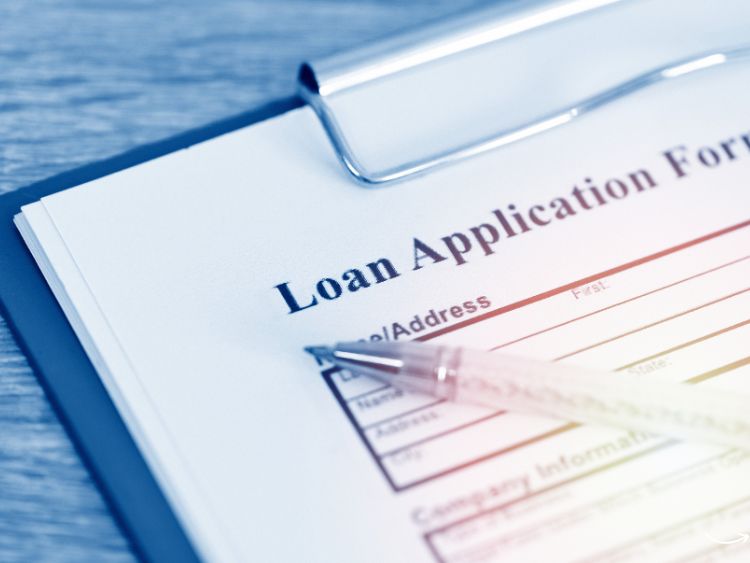When it comes to finalizing loan documents, the role of a notary is indispensable. But what exactly does a notary for loan documents do? And why is it so important to have one? This comprehensive guide will walk you through the ins and outs of notary services for loan documents, ensuring you understand their importance and how to utilize them effectively.
Why Notaries Matter in Loan Document Transactions
In the world of finance and real estate, every detail counts. Loan documents, being legally binding contracts, require utmost precision and accuracy. This is where a notary for loan documents steps in. A notary’s primary responsibility is to ensure that the signatures on the loan documents are authentic, that the signers are who they claim to be, and that they are signing these documents of their own free will. In essence, a notary acts as a neutral third party who ensures that the entire transaction is above board, preventing any potential fraud or coercion.
What Is a Notary for Loan Documents?
A notary for loan documents is a licensed public officer who plays a crucial role in the signing process of loan-related paperwork. Their duties include verifying the identities of all parties involved, witnessing the signing of the documents, and applying their official notary seal to validate the transaction. Notaries are often called upon in situations involving mortgages, refinances, home equity loans, and other significant financial transactions.
Focus Keyword: Notary for loan documents
SEO Meta-Description: Discover the critical role a notary for loan documents plays in ensuring secure, fraud-free financial transactions. Learn about their responsibilities, process, and how to choose the right notary for your needs.
Why Do You Need a Notary for Loan Documents?
You might wonder, “Why is a notary necessary for loan documents?” Well, the answer lies in the protection they offer both parties involved in the transaction. Here are some of the key reasons:
- Fraud Prevention: By verifying the identities of the signers, notaries help prevent identity theft and ensure that no one is signing under duress.
- Legal Compliance: In many states, it’s a legal requirement to have certain loan documents notarized to be considered valid and enforceable.
- Public Record: Notarized documents often become part of the public record, offering a layer of transparency and accountability.
- Dispute Resolution: In case of a dispute, a notarized document provides stronger legal evidence that the transaction was conducted properly and with the consent of all parties involved.
The Notarization Process for Loan Documents
So, how does the notarization process work for loan documents? Let’s break it down:
Step 1: Verification of Identity
The notary will first ask for valid identification from all parties involved. This could include a driver’s license, passport, or any government-issued ID. The notary checks the ID to ensure that the person signing is indeed who they claim to be.
Step 2: Document Review
Next, the notary will review the loan documents to ensure that all necessary sections are filled out correctly and that no blanks remain that could be tampered with later.
Step 3: Signing the Documents
Once the verification and review are complete, the notary will witness the signing of the documents. Each signer must do this in the notary’s presence to ensure authenticity.
Step 4: Applying the Notary Seal
After the documents are signed, the notary will apply their official seal or stamp to the documents. This seal signifies that the notary has verified the identities of the signers and witnessed the signing process.
Step 5: Recording the Transaction
In some cases, the notary may also record the transaction in a notary journal, noting the details of the document, the signers, and the date and time of the notarization.
Choosing the Right Notary for Loan Documents
Selecting the right notary is critical to ensuring a smooth and legally compliant transaction. Here are some tips on what to look for:
- Experience: Look for a notary with experience in handling loan documents specifically. They will be familiar with the intricacies of the paperwork and the necessary procedures.
- Availability: Make sure the notary is available at a time that’s convenient for you, as loan signings often require flexibility.
- Reputation: Check reviews or ask for recommendations from your lender or real estate agent. A notary with a good reputation is likely to provide reliable service.
- Credentials: Ensure the notary is properly licensed and bonded in your state. This protects you in case of any errors or omissions during the notarization process.
Common Mistakes to Avoid During Loan Document Notarization
Navigating the notarization process can be tricky if you’re not familiar with it. Here are some common mistakes to watch out for:
- Not Bringing Proper Identification: Always bring valid, government-issued ID to the notarization appointment.
- Leaving Sections Blank: Ensure all required sections of the document are completed before the notarization process begins.
- Using an Unqualified Notary: Not all notaries are equipped to handle loan documents. Make sure your notary has the necessary experience and qualifications.
- Skipping the Review Process: Don’t rush through the document review. Ensuring accuracy now can prevent headaches down the line.
FAQs: Notary for Loan Documents
Q: Do I need to be present for my documents to be notarized?
A: Yes, the notary must witness the signing of the documents in person to verify their authenticity.
Q: Can a notary refuse to notarize my loan documents?
A: A notary can refuse to notarize documents if they suspect fraud, if the documents are incomplete, or if the signers do not have proper identification.
Q: How much does it cost to notarize loan documents?
A: The cost varies by state and notary, but fees typically range from $10 to $50 per document. Some notaries may also charge travel fees if they come to your location.
Q: Can loan documents be notarized online?
A: Yes, in many states, remote online notarization (RON) is now legal, allowing you to sign and notarize documents via a secure online platform.
Q: What happens if a mistake is made during notarization?
A: If a mistake is made, the document may need to be re-notarized. This can involve additional time and costs, so it’s important to ensure accuracy during the initial process.
Summary: The Vital Role of Notaries in Loan Transactions
In conclusion, a notary for loan documents plays a vital role in safeguarding the integrity of the transaction. From preventing fraud to ensuring legal compliance, the notary’s responsibilities are crucial for both the borrower and the lender. By understanding the notarization process and choosing the right notary, you can ensure a smooth and secure loan signing experience.
Remember, whether you’re buying a new home, refinancing, or taking out a loan, having your documents notarized by a qualified professional is an essential step in protecting your interests.
Authoritative Links
- National Notary Association: https://www.nationalnotary.org
- American Society of Notaries: https://www.asnnotary.org
- Notary Rotary: https://www.notaryrotary.com
- National Association of Secretaries of State: https://www.nass.org
This article on ‘Notary for Loan Documents’ should provide you with a clear understanding of the process, its importance, and how to navigate it successfully. Ensure you’re well-prepared, and you’ll find the notarization process to be straightforward and stress-free.


